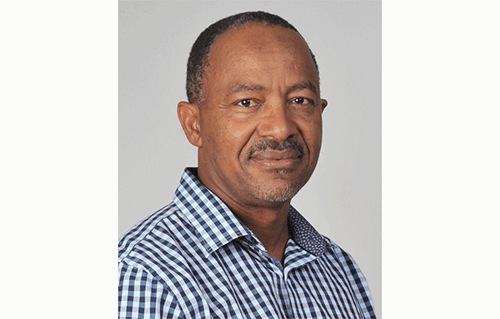Barely six months after the passing of Ovaherero paramount chief Vekuii Rukoro, the Ovaherero Traditional Authority appears to be in turmoil, as two factions emerged, fighting to replace him.
The factions consist of supporters of secretary general academic Mutjinde Katjiua and acting paramount chief Vipuira Kapuuo.
At the centre of the dispute is who is the right person or entity to identify and appoint the next paramount chief.
Traditionally, this task is left with the chiefs council. However, this time around, a new transition committee, consisting of five members, chaired by Katjiua, was formed.
This development did not go down well with the chiefs council chairperson and acting paramount chief Kapuuo, who said he was being stripped of his powers.
Kapuuo has not indicated whether he would want to become the next paramount chief, and has so far only shown interest in facilitating the process.
The two factions seem to consist of younger, educated members of the Ovaherero community supporting academic Katjiua to take over the paramount chieftainship while the older generation appears to be supporting Kapuuo to continue until the “properly constituted” chiefs council (CC) meeting, set for next month (January).
Katjiua is the current OTA secretary general and chairperson of the newly formed transitional committee to facilitate the appointment of the new paramount chief.
The group supporting Katjiua this weekend had ‘chiefs council’ meeting at Onderombapa in the Aminuis constituency, where Katjiua was endorsed as the next paramount chief designate.
The group also resolved to remove Kapuuo, who became the acting paramount chief as per tradition, by virtue of him having been the chiefs council chairperson at the time of Rukoro’s passing.
Kapuuo, according to a statement by Katjiua on Sunday, was replaced by chief Boas Tjingaete, a member of the chiefs council.
Katjiua in the statement said the Onderombapa meeting was attended by 126 delegates from 30 chapters as far as Kunene, Botswana and South Africa.
However, this was heavily contested by Kapuuo yesterday, who said the Onderombapa meeting was illegally constituted.
“We, the majority of the chiefs council, do not recognise the alleged appointment of professor Mutjinde Katjiua as paramount chief-designate,” Kapuuo said in a statement yesterday.
Kapuuo says it is only at a properly constituted meeting of the Ovaherero senate that candidates’ names can be put forward for debate among the approximately 470 members to designate a new chief.
He assured his subjects that he is still in charge of the traditional authority affairs until a “properly constituted” chiefs council meeting that is set for next month.
Kapuuo said the meeting was not organised or authorised by him as the chairperson of the chiefs council.
“The CC meeting was attended by nine of the 28 chiefs and five of the 17 Red Flag commandos; therefore, the meeting lacked the quorum. Also, the meeting was irregular, as the chiefs council does not have the authority to select a paramount chief designate,” Kapuuo, who boycotted the meeting, stated.
Meanwhile, patron of the Ovaherero Red Flag Association Ben Zaaruka on Monday described the weekend’s meeting at Onderombapa in the Aminuis constituency as illegal, null and void while warning those who convened the gathering not to “pee on their tradition”.
He said such a meeting should have been called by Kapuuo, the chiefs council’s chairperson and the OTA acting paramount chief.
Veteran journalist and Ovaherero traditionalist Kae Matundu-Tjiparuro last week explained the succession of the Ovaherero paramount chief is not hereditary, but a process done through election.
He said, if there is more than one candidate, they are elected.
Candidates are nominated widely, especially by the constituent communities.
“There have been instances when the successor has been anointed by the incumbent by confiding in confidantes within the traditional structures. But it is not automatic that the anointed becomes the successor, but he may have to compete with other nominees.
The whole process – from nomination to the election and/or affirmation of the anointed – is usually presided over by the chairperson of the chief’s council, who is the de facto acting paramount chief.”
- ktjitemisa@nepc.com.na


